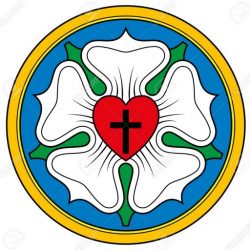
Lutheran theologian Hermann Sasse answers the question well:
“Why is Luther the greatest in what has been a long line of teachers in the church who have proclaimed the Word of God from generation to generation? It is because none of the others understood the Word of God so profoundly. The Word of God is greater than human words, which have limitations. The time will come when nobody remembers Homer, or Shakespeare or Goethe, but the Word of God will endure forever. Human words can certainly accomplish much – the command of a powerful ruler or of a general can decide the fate of nations, but sooner or later their power ceases to be. No mere human word is almighty. But God’s Word is always living and active because it is the Word of the eternal, almighty God, the Word through which all things were created. It is the Word of the Judge of all who live. It is the Word of forgiveness, the Word of redemption, the Word which no human word can contradict. It is the Word which, as John says, has become flesh in Jesus Christ. He is himself the eternal Word of God; ‘his name’, it is written in Revelation (19:13), ‘is called the Word of God’. To proclaim the Word of God is to proclaim Jesus Christ. ‘To him all of the prophets bear witness’, according to the apostle Peter (Acts 10:43). ‘We preach Christ crucified’ says Paul in regard to the preaching of the apostles (1 Cor 1:23). He, Jesus Christ, is the content of the church’s preaching – that he is the Redeemer and the Lord is the proclamation of the teachers of the church from its very beginning. That is the message which has been handed down from one generation to another. The proclaimers come and go, but the proclamation itself remains the same: Jesus Christ is the same yesterday, today and forever. That and nothing else is the content of the Christian proclamation. Luther again and again reminded the church of this – a church which had forgotten it, and indeed which had almost buried the one Word of God under so many human words of religion and philosophy.
Luther is one of the great Christologists, the great witnesses to Christ in the church. Like the great theologians of the early church – an Irenaeus or an Athanasius – he stood in reverence before the great mystery of God’s revelation: ‘the Word became flesh’ (John 1:14); ‘great is the mystery of godliness, that God was manifest in the flesh (1 Tim 3:16). All of his life Luther stood prayerfully and reverently before the incomprehensible mystery of the person of Jesus Christ, ‘where God and man meet and all fullness appears’. What the Greek fathers of the 4th and 5th centuries acquired by deep study of Holy Scripture with reverent and prayerful meditation, what the ancient church confessed in her ecumenical councils and stated contrary to the reasoning of philosophy – that Jesus Christ is true God, God from God, Light from Light, very God of very God, of one being with the Father, and at the same time true man – Luther thought through these powerful truths and took them even further in his theology in connection with the doctrine of the Lord’s Supper. However, he tried to speak of these things so clearly and simply that even the simplest Christian – yes, even a child – could grasp them. ‘He whom the world could not contain, lies on Mary’s lap. He who upholds all things becomes a little child’. That is the teaching of Nicea. Or we think of how Luther expressed the doctrine of Chalcedon, the teaching of the two natures of Christ, in his catechism – ‘I believe that Jesus Christ, true God, begotten of the Father from eternity, and also true man, born of the virgin Mary, is my Lord…’ This explanation of the second article of the creed has been called by some the most beautiful sentence in the German language – it is the most beautiful sentence in the German language, but not only because of its structure, which reveals a master of language, but also because of its content. Here we find the eternal Word of God, the eternal Gospel: Jesus Christ, the same yesterday, today and forever.
From a sermon given on Reformation Day 1943 in Erlangen, Germany.
HT: Pastor Mark Henderson
